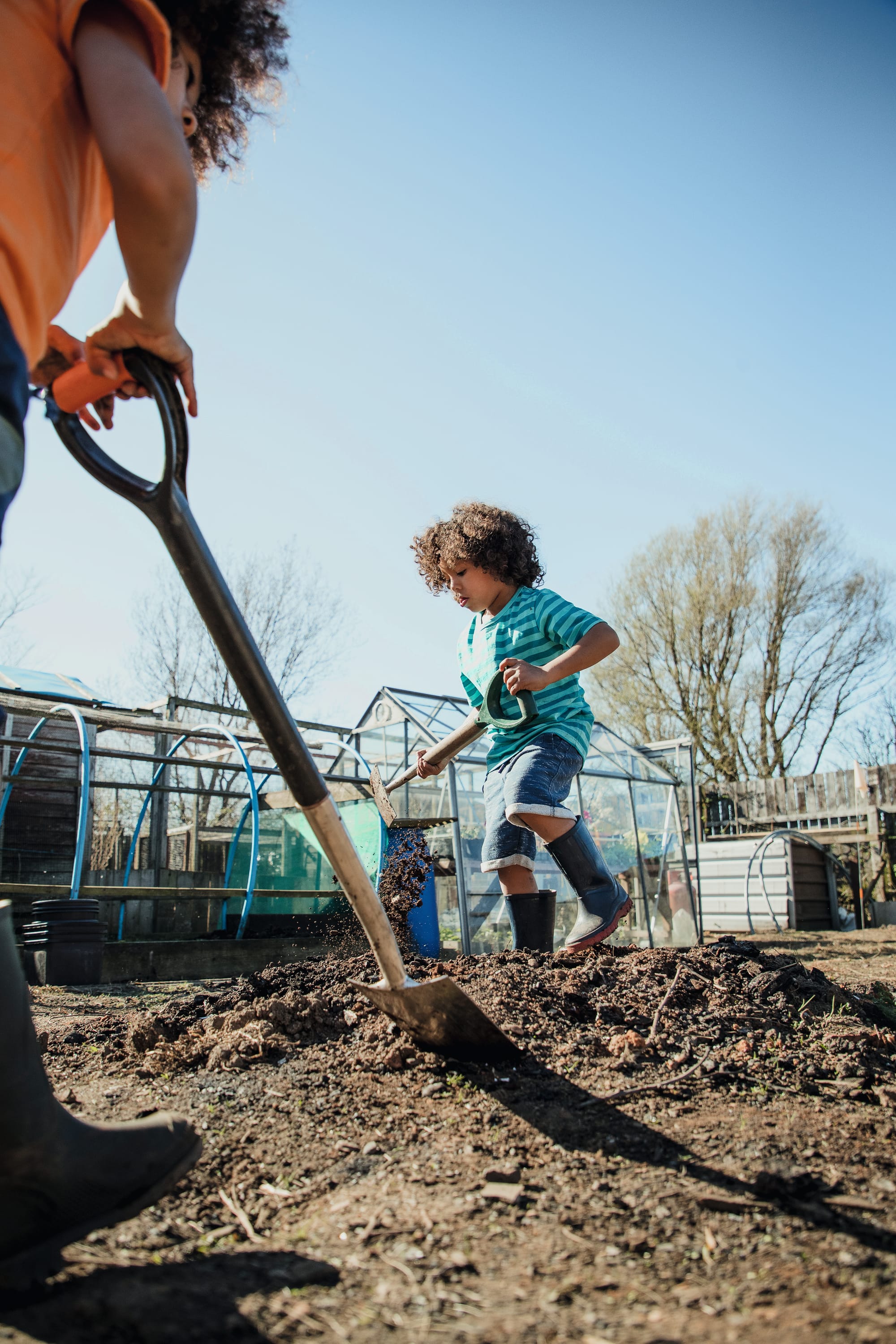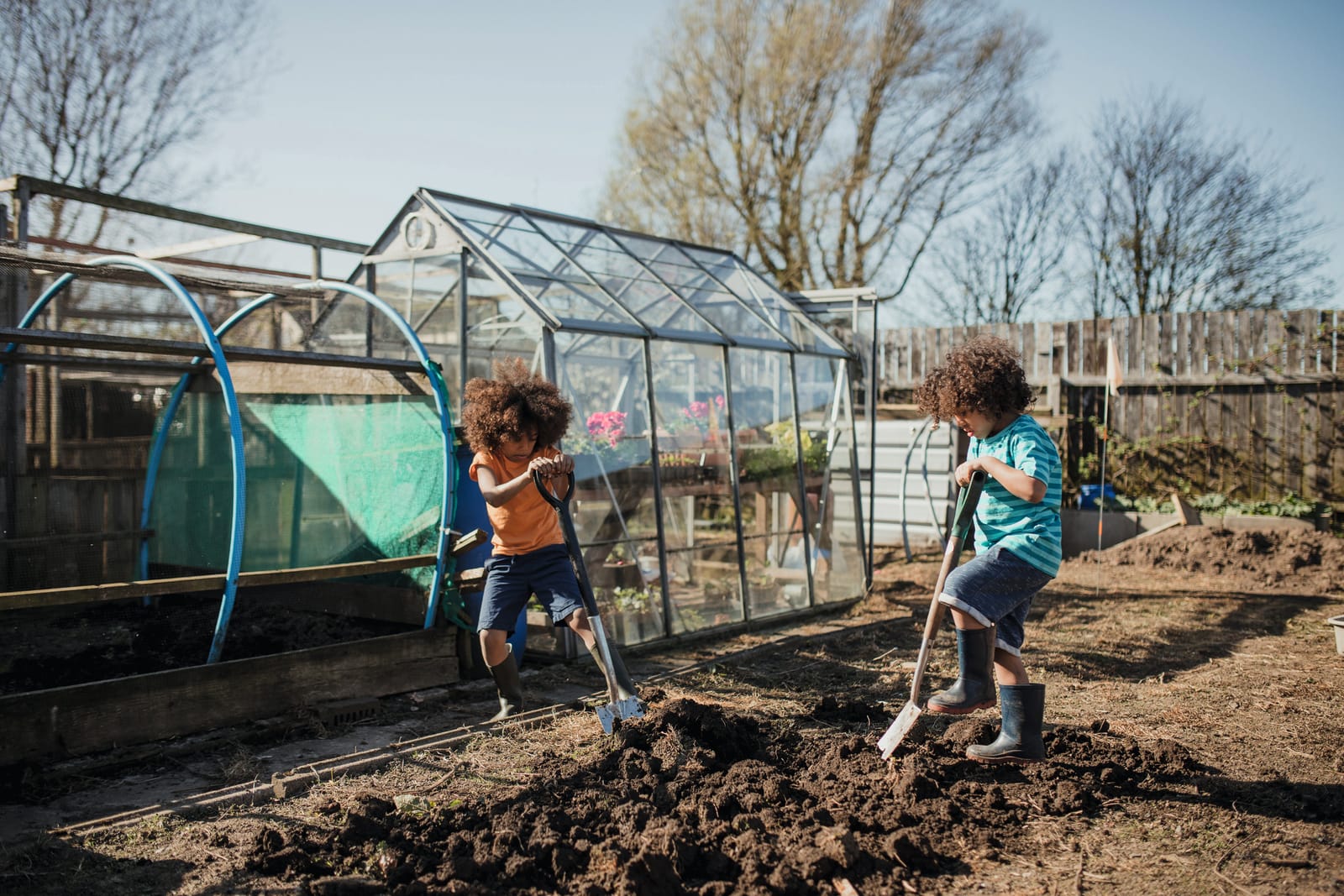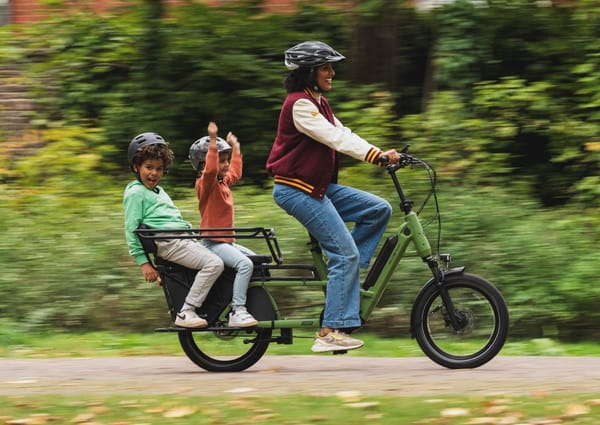Lenore Skenazy offers a commonsense approach to parenting in these overprotective times. All too often we wrap kids up in cotton wool and don't trust their natural abilities
A free-range kid is a child who gets treated as a smart, young, capable individual, not an invalid who needs constant attention and help. All too often in our fear-based society, we treat kids as if they couldn’t possibly walk home from school, or make their own lunch or climb a tree without hurting themselves, or struggling too much. Free-Range Kids are sort of old-fashioned. They’re kids who are expected to WANT to grow up and do things on their own. And then, when they show us they’re ready, we allow them to.
I founded the Free-Range Kids movement in part to be one small voice saying, “Hey! I know we are all scared for our kids! But maybe we don’t have to be quite so terrified!” It’s an attempt to figure out how we got so much more worried for our kids in just one generation, and to separate the real dangers from the ones foisted upon us by the media, and by other folks with things to sell.

‘A free-range kid is a child who gets treated as a smart, young, capable individual, not an invalid who needs constant attention and help’
Why Failure is Necessary for Free Range Kids
One of my Free-Range Commandments is, “Fail! Easy! Educational!” We don’t want our kids to ONLY fail, of course. But if they don’t fail sometimes, they won’t learn that they can get back up and go on with their lives.
For instance, we don’t want our kids to fall off a bike. Who does? But we do want them to learn how to ride. So we have two choices: We can hold onto their handlebars forever. That way they’ll never, ever fall. Or we can wish them luck and then — let go. Chances are, if we do that, they will, at some point, fall. When they get up again, they’ll have two huge things going for them: They’ll know they can fall and get back up again. If that’s not a life lesson, what is? And, they’ll be learning how to actually ride a bike.
Most things in life take some tumbles before we get it right. As Thomas Edison said, when asked how it felt to fail 10,000 times before he figured out the light bulb, “I haven’t failed. I’ve just found 10,000 ways that won’t work.”
Raising free range kids is not that hard wherever you live
It just takes some time on the parents’ part. For us in New York city, free-range means teaching our kids how to take public transportation. Elsewhere it might involve teaching them how to ride their bikes. And in any place, we also teach kids how to be safe in the very unlikely event they encounter someone creepy.
What do I suggest? Teach your kids TO talk to strangers. That way, if they’re ever creeped out by someone in the proverbial white van, they can run to the man across the street, raking his leaves, and say, “Help! I’m being followed!” Or they can run into a shop and say, “Call the police!” Or, “Can I please borrow your phone?” Confident kids who feel at home in the world are SAFER than coddled kids who have been taught they are dainty prey without mum or dad by their side.
We ALL want our kids to be safe, and happy, and responsible. It’s just a question of what we see as dangerous. Some helicopter parents see the outside world as unspeakably treacherous. I see it as a place children have always explored and messed around in. I was talking to a representative from Tide recently and he told me kids are not getting as dirty as they used to! That’s sad.
Lenore lives in NYC, is a mother and founder of Free Range Kids and Let Grow, the no-profit whose motto is When adults step back, kids step up.
What should we do to liberate our kids without going crazy with worry? In my book, Free Range Kids! there are lots of tips. Here are a few:
- Warn your family beforehand, then turn off your mobile for a day. Better still, leave it on a shelf so you won’t be tempted to turn it on for a quick check. Why? Mostly because one morning my 10-year-old called to ask me, “Mum? Can I have another piece of banana bread?” And I realized: Our kids are getting used to us making ALL their decisions. Even the banana-bread-related ones. Time to stop treating them like toddlers. (At least, once they actually AREN’T toddlers.)
- When you’re standing around with a bunch of other parents all waiting for football to start, or school to open, or the bus to pick them up, volunteer to watch all the children yourself. Give the other parents a little break. This way you are creating community. It’s your way of saying we’re all in this together and we can help each other out. It’s also a way of saying, “Look, I don’t think anything so horrible is about to happen here at this bus stop that we need five adults to fight for the lives of five or six children. ”If the other parents are too nervous to accept your kind offer, flip it around. Ask them to watch your kid! This creates a sense of shared responsibility, too. And gives you time to go and get coffee.
- Get a little perspective on this strange, scared parenting era we are living in by visiting a baby superstore with your oldest living relative. (Yes, always best if they’re living.) Go around looking at all the things like baby knee pads and infra-red video baby monitors asking, “Which of these things did YOU need when you were raising us?” (Be prepared for a little scorn.)
- And if you are an educator, considering doing The Let Grow Project. Find out more at letgrow.org, the nonprofit I now head that promotes childhood independence.

MORE INSPIRATION
DOWNLOAD The Independence Kit at letgrow.org/free-curriculum-independence-kit
READ Free Range Kids: How to Raise Safe, Self-Reliant Children Without Going Nuts with Worry








